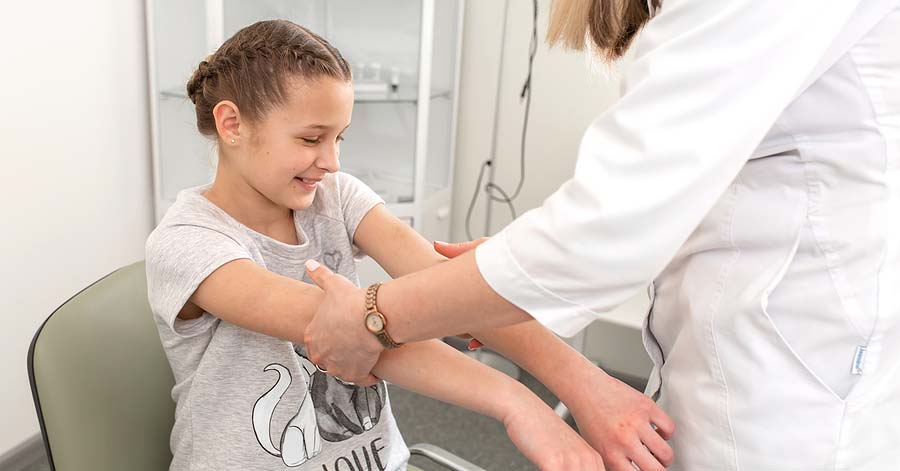Reactive Arthritis in Children and Adolescents
Reactive arthritis, formerly referred to as Reiter's syndrome, occurs after a bacterial infection and can affect children and teenagers, as well as adults. In addition to symptoms of arthritis, such a joint pain or swelling, children with reactive arthritis may also have inflammation in their eyes, skin and urinary tracts. Reactive arthritis syndromes that occur after streptococcal infection, such as rheumatic fever and poststreptococcal reactive arthritis, are discussed separately.
What are the symptoms of reactive arthritis in a child?
One to four weeks after the infection, children typically develop acutely painful, swollen, red, and/or warm joints (arthritis). Some children may develop a rash or inflammation in the eyes (conjunctivitis or uveitis). Less commonly, patients may develop inflammation in the genitourinary tract (cervicitis or urethritis). This may be asymptomatic, or it may result in the child having painful urinations.
What causes children to get reactive arthritis?
Children with reactive arthritis typically have a history of a preceding gastrointestinal or urinary tract infection. During the initial infection, they may have symptoms including fever, diarrhea, vomiting, abdominal pain, or pain with urination. The most common bacterial causes of reactive arthritis are yersinia, salmonella, shigella, campylobacter, and chlamydia, although other types of bacteria may cause it as well.
How is reactive arthritis diagnosed in a child?
A careful history and physical exam are the first step in making a diagnosis of reactive arthritis. Your child's doctor may order blood, stool or urine tests to look for evidence of current or previous infection. Bloodwork may also show signs of inflammation. In some cases, as well as imaging studies such as an ultrasound or MRI, may be helpful. (Find a doctor at HSS who treats arthritis in children.)
What is the treatment for reactive arthritis in children?
If there is an active infection at the time of presentation, your child’s doctor may recommend a course of antibiotics (depending on the bacterial source). Most children with reactive arthritis will respond to nonsteroidal anti-inflammatory drugs (NSAIDs). In children with significant joint swelling or pain, a steroid injection may be recommended. Rest, ice, and heat may also be helpful for managing pain. Rarely, children with reactive arthritis may require immunosuppressive medication.
What is the prognosis for a child who has reactive arthritis?
In most children with reactive arthritis, the symptoms resolve within 3 to 12 months. Though the prognosis of reactive arthritis is generally very good, some children have recurrent episodes of joint inflammation. These patients may develop more chronic forms of inflammatory arthritis, including enthesitis-related arthritis and other spondyloarthropathies.
Updated: 10/11/2022
Authors
Attending Physician, Hospital for Special Surgery
Assistant Professor of Pediatrics, Weill Cornell Medical College

